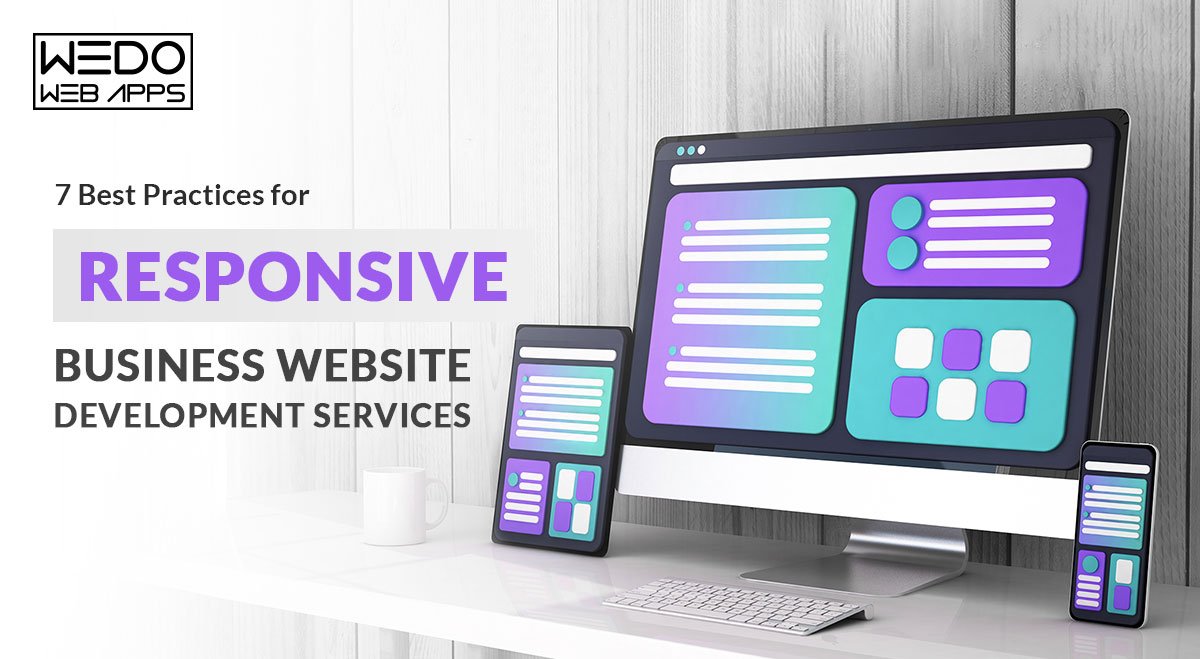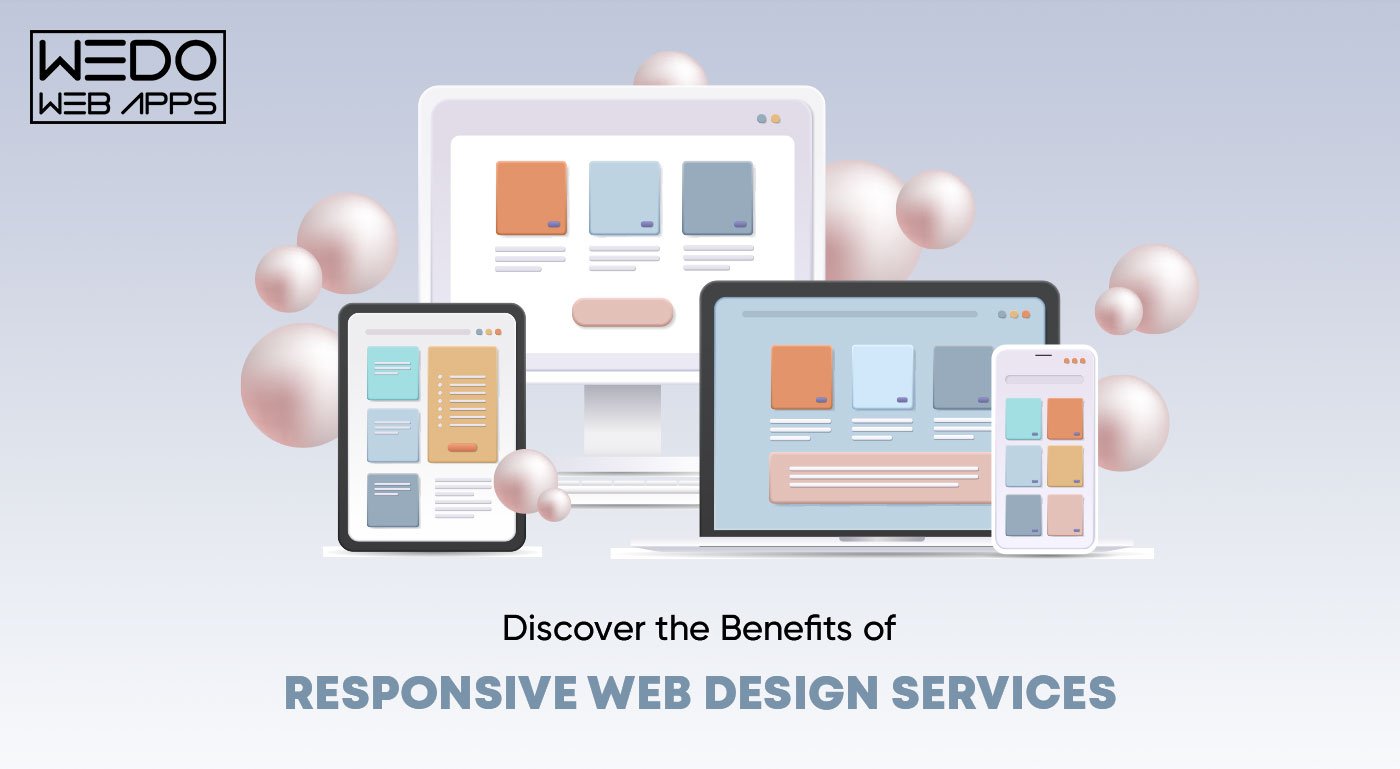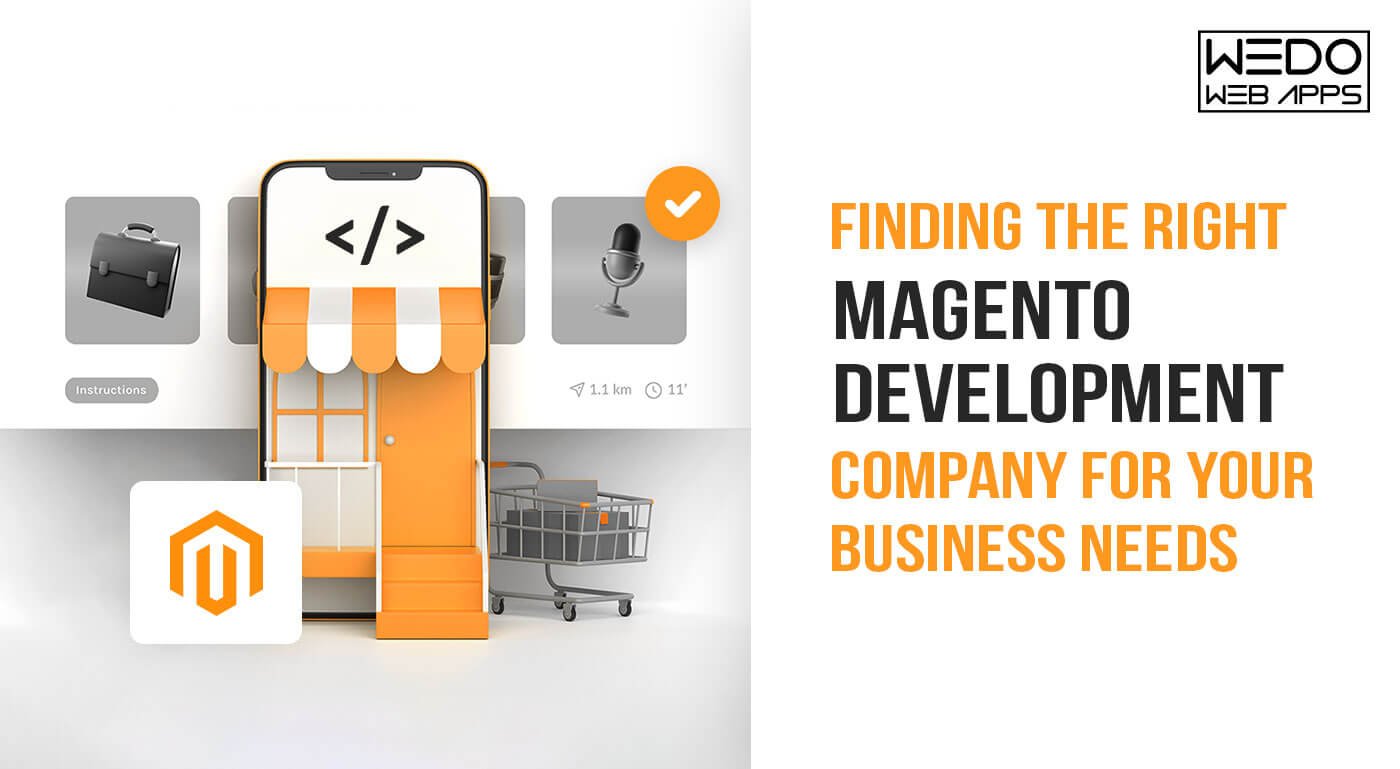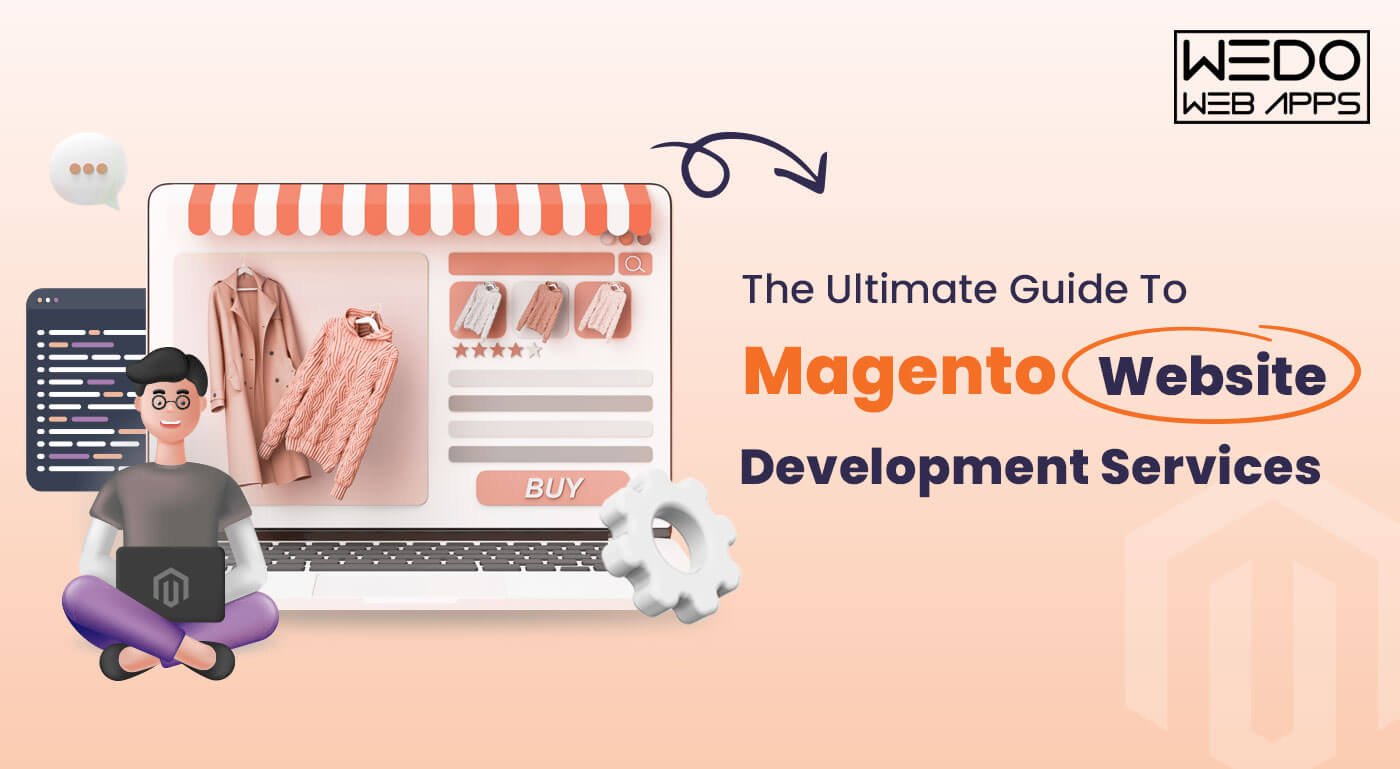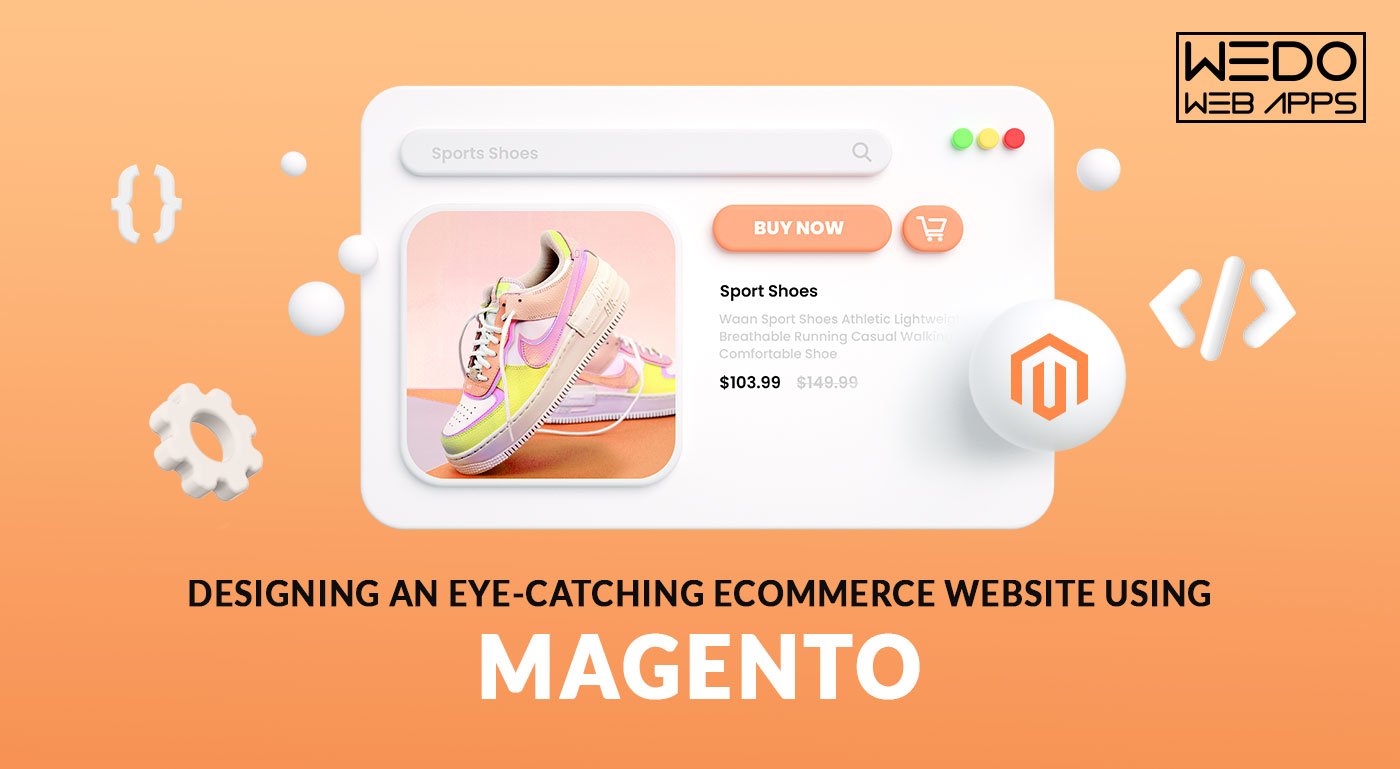Designing an eye-catching eCommerce website using Magento is an important goal for many online businesses. Magento is an open-source platform that is popular among retailers for its flexibility and scalability.
Creating an attractive eCommerce website with Magento is about more than just aesthetics. It’s about creating a customer experience that encourages visitors to explore, engage, and purchase from your store.
First and foremost, you need to make sure your website is mobile-friendly. According to statistics, more than half of all online shoppers now shop via their mobile devices. To ensure your website is optimized for mobile devices, consider setting up a responsive design that automatically adjusts based on the size of the screen.
Next, you need to make sure your website is easy to navigate. Using a user-friendly navigation structure will help visitors find the products they’re looking for quickly and easily. Magento provides a number of options for customizing your navigation structure, such as the ability to create product categories, search filters, and sorting options.
Once you have the basics of your website design in place, you can focus on making it visually appealing. Magento development offers a range of features that allow you to customize the look and feel of your store, such as color schemes, font options, and product images. Try to create a visually stimulating design that captures the essence of your brand.
Finally, make sure you’re taking advantage of all the features Magento has to offer. Magento provides a number of marketing and customer service tools to help you engage customers and boost conversions. Some of these features include customer reviews, product recommendations, and personalized emails.
Designing an eye-catching eCommerce website with Magento is a great way to attract more visitors and increase sales. By following the tips outlined above, you can create an attractive website that encourages visitors to explore, engage, and purchase from your store. The success of any eCommerce project is largely dependent on the design of the website. You need to ensure that your eCommerce website is designed in a way that grabs the attention of your customers and drives them to make a purchase. Magento is one of the most popular and powerful eCommerce platforms out there, and it can be used to create an eye-catching eCommerce website.
Here are some tips on how to design an eye-catching eCommerce website using Magento.
- Focus on Usability:
It is important to ensure that your eCommerce website is easy to navigate and use. Customers should be able to locate their desired products or information with ease and swiftness. Magento offers a variety of features that make it easy to build a usable website. Make sure to take advantage of these features and create a website that is easy to use.
- Make the Design Appealing:
The design of your website should be visually appealing. It should have a modern look and feel that draws the customer in. Magento offers a wide range of themes and templates that you can use to create an eye-catching website. Choose a theme or template that matches your brand and offers a visually appealing design.
- Optimize for Speed:
When it comes to eCommerce websites, speed is key. Customers don’t want to wait around for a page to load. Magento offers a variety of features that make it easy to optimize your website for speed. Make sure to take advantage of these features and ensure that your website loads quickly.
- Focus on Security:
Security is a major concern when it comes to eCommerce websites. Customers need to know that their data is safe and secure. Magento offers a variety of features that make it easy to secure your website. Make sure to take advantage of these features and ensure that your website is secure.
By following these tips, you can design an eye-catching eCommerce website development using Magento. Make sure to focus on usability, design, speed, and security to ensure that your website is successful. With Magento, you can create an eye-catching website that draws customers in and encourages them to make a purchase. Creating an online store can be a challenging and intimidating task. With so many different platforms available, it can be difficult to decide which one will be the best fit for your business. Magento is a popular eCommerce platform that offers a wide range of features and customization options. It’s a great choice for businesses that want to create an eye-catching eCommerce website.
When creating a website using Magento, the first step is to select a template. Magento offers a variety of templates that can give your website a professional look and feel. You can also customize the template to create a unique design that reflects your brand.
Once you’ve chosen a template, you can begin to add content to your website. Magento makes it easy to add products, categories, and images. You can also create pages and blog posts to provide your customers with more information about your products and services.
The next step is to set up payment options. Magento website development provides secure payment processing, so you can accept payments from customers all over the world. You can also add discounts and promotions to your store to encourage customers to make purchases.
Lastly, it’s important to optimize the website for search engines, to increase the chances of potential customers discovering it. Magento has a built-in SEO tool that can help you with this process.
By using Magento, you can create an eye-catching eCommerce website that will help you grow your business. With its wide range of features and customization options, you can create a website that reflects your brand and meets the needs of your customers. As e-commerce continues to grow, more and more businesses are relying on the internet to reach new customers and increase sales. This means that it’s more important than ever to design an eye-catching website that stands out from the competition. Magento is a powerful e-commerce platform that can help you create a website that’s both attractive and effective.
Here are some tips for designing an eye-catching e-commerce website using Magento.
- Choose an eye-catching theme.
The theme you choose for your Magento website can make all the difference in how it looks and how successful it is. Choose a theme that’s modern, attractive, and easy to navigate. Make sure that it suits your brand and conveys the message you want to communicate to customers.
- Leverage attractive visuals.
Visuals are key to an eye-catching website design. Make sure you’re using high-quality images that are relevant to your products and services. Magento website development also allows you to add videos, slideshows, and other visual elements to your website to make it even more attractive.
- Make sure your website is mobile-friendly.
With the rise of mobile shopping, it’s more important than ever that your website is optimized for mobile devices. Magento offers responsive themes and features that can help you ensure that your website looks great on all types of devices.
- Optimize your website for search engines.
Search engine optimization (SEO) is essential for any e-commerce website. Magento provides a range of SEO tools and features that can help you make sure your website is properly optimized for search engines.
- Utilize Magento’s features.
Magento offers a range of features that can help you create an eye-catching website. Take advantage of features like the product catalog, shopping cart, and checkout process to make sure your website is easy to use and intuitive for customers.
By following these tips, you can create a website that’s both attractive and effective. Magento is a powerful e-commerce platform that can help you design an eye-catching website that stands out from the competition and increases sales.
FAQ
Why use Magento for eCommerce?
Magento is a popular eCommerce platform because it offers a wide range of features and functionalities that can help businesses create a professional and effective online store. Some of the reasons why businesses choose to use Magento for eCommerce include:
Customizable: Magento is an open-source platform, which means it can be customized to suit the specific needs of a business.
Scalable: Magento can handle high traffic and large catalogs, making it suitable for businesses of all sizes.
SEO-friendly: Magento is designed with SEO in mind, which helps to improve a store’s visibility in search engines.
Multi-lingual and Multi-currency support: Magento can support multiple languages and currencies, making it easy for businesses to expand into new markets.
Large community: Magento has a large community of developers and users, making it easy to find help and resources when needed.
Mobile-friendly: Magento offers mobile-optimized templates and responsive design.
Advanced analytics and reporting: Magento provides advanced analytics and reporting, which helps businesses to track and analyze their sales and customer behavior.
Third-party integrations: Magento can easily integrate with a wide range of third-party tools and services, such as payment gateways, shipping providers, and more.
How does Magento work?
Magento is an open-source eCommerce platform that uses the PHP programming language and the MySQL database management system. It is built on the Model-View-Controller (MVC) architectural pattern, which separates the application’s data model, user interface, and control logic.
When a user makes a request to a Magento website, the request is processed by the Magento front controller, which routes the request to the appropriate controller. The controller then retrieves the necessary data from the model, which is the part of the application that handles the data and logic and sends it to the view. The view then renders the data and presents it to the user in the form of a web page.
Magento also uses a system of modules and blocks, which allows developers to create reusable code and separate different functionality. This system allows developers to easily add new features and functionality to the site without having to make changes to the core code.
Magento also has a built-in caching system that stores the pages and blocks of the site in memory, which helps to improve the performance of the site. Additionally, it also offers built-in support for SEO and includes features such as sitemaps, Meta tags, and URL rewrites.
Overall, Magento works by processing the requests made by users, retrieving the necessary data from the model, and then displaying the data to the user via the view. It also relies on modules and blocks to add functionality and a caching system to improve performance.
How to design an eCommerce homepage?
Designing an effective eCommerce homepage can be a crucial step in attracting and converting customers. Here are a few key elements to consider when designing an eCommerce homepage:
Navigation: The navigation menu should be clear and easy to use, making it simple for customers to find what they are looking for.
Branding: The homepage should be consistent with the overall branding of the site, including the color scheme, typography, and logo.
Hero area: The hero area is typically the largest section of the homepage and is used to showcase the most important products or promotions. This area should grab attention and be visually appealing.
Product categories: The homepage should feature a clear and easy-to-use product category section, making it easy for customers to find what they are looking for.
Product Showcase: The homepage should also feature a product showcase section, where new or popular products can be highlighted.
Call to Action (CTA): The homepage should also have a prominent call to action, such as “Shop now” or “Learn more”, to encourage customers to take action.
Search bar: A search bar should be easily accessible, allowing customers to quickly search for specific products.
Reviews and Testimonials: The homepage should include customer reviews or testimonials, which can help to establish trust and credibility.
Contact Information: The homepage should have a clear and easy way for the customers to contact the company, whether it’s an email, phone number, or a contact form.
Responsive design: The homepage should be responsive, meaning it should look and function well on various devices such as desktops, laptops, tablets, and smartphones.
Keep in mind that the homepage is often the first thing that customers see when they visit your website, so it should be designed to make a great first impression and make it easy for customers to find what they are looking for.
Is Magento a cms?
Magento is not a traditional content management system (CMS) like WordPress or Drupal. It is an e-commerce platform that provides the necessary tools and functionality for businesses to create an online store and sell their products or services.
While Magento does have some basic content management features, such as the ability to create pages and manage navigation, it is primarily focused on providing e-commerce-specific features such as product and category management, shopping cart and checkout functionality, and integration with payment gateways and shipping providers.
Magento also offers a wide range of customization options, allowing businesses to tailor their online store to their specific needs. This can include customizing the design and layout of the store, creating custom functionality using modules, and integrating with other systems and services.
In summary, Magento is an eCommerce platform that has some basic content management functionality, but it primarily focused on providing tools and functionality specific to online stores.
Read also: Is Magento the most preferred ecommerce business platform?
Who owns Magento?
As of my knowledge cut off in 2021, Magento is owned by Adobe Inc. After the acquisition of Magento by Adobe in 2018 for $1.68 billion in cash, Magento became a subsidiary of Adobe and continues to operate as an independent business unit under Adobe’s umbrella.
How much does Magento cost?
Magento website is an open-source platform, which means that the basic version of the software can be downloaded and used for free. However, there are costs associated with using Magento, such as hosting fees, domain registration, and the cost of any additional plugins or modules that you may require.
The cost of hosting a Magento site can vary depending on factors such as traffic, the size of your catalog, and the level of customization required. Generally, you can expect to pay anywhere from $20 to $500 per month for hosting, although it can be more expensive for larger or more complex sites.
There are also two different editions of Magento available, Magento Open Source (previously called Community Edition) which is free, and the paid version, Magento Commerce (previously called Enterprise Edition). Magento Commerce edition offers additional features and functionalities such as advanced SEO, B2B functionality, and scalability. The cost for Magento Commerce starts at around $22,000 per year.
In addition to the cost of the software, there are also costs associated with customizing and maintaining a Magento site. These costs can include things like design and development, testing, and ongoing support and maintenance. These costs can vary depending on the complexity and size of the project, but they can range anywhere from a few thousand dollars to tens of thousands of dollars.
In summary, while the Magento platform itself is free, there are additional costs associated with using the platform such as hosting, domain registration, and additional plugins or modules. Additionally, there is a paid version of Magento website development services available with additional features, Magento Commerce, which costs $22,000 per year. And also there are costs associated with customizing and maintaining a Magento site, which can vary depending on the complexity and size of the project.
How does Magento work?
Magento is an open-source eCommerce platform that uses the PHP programming language and the MySQL database management system. It is built on the Model-View-Controller (MVC) architectural pattern, which separates the application’s data model, user interface, and control logic.
When a user makes a request to a Magento website, the request is processed by the Magento front controller, which routes the request to the appropriate controller. The controller then retrieves the necessary data from the model, which is the part of the application that handles the data and logic and sends it to the view. The view then renders the data and presents it to the user in the form of a web page.
Magento also uses a system of modules and blocks, which allows developers to create reusable code and separate different functionality. This system allows developers to easily add new features and functionality to the site without having to make changes to the core code.
Magento also has a built-in caching system that stores the pages and blocks of the site in memory, which helps to improve the performance of the site. Additionally, it also offers built-in support for SEO and includes features such as sitemaps, meta tags, and URL rewrites.
Overall, Magento works by processing the requests made by users, retrieving the necessary data from the model, and then displaying the data to the user via the view. It also relies on modules and blocks to add functionality and a caching system to improve performance.
It also includes an administration panel where store owners can manage their products, orders, customers, and other aspects of their online store. The panel is accessed via a web browser and allows store owners to make changes to their site without needing to know how to code.
In addition to these basic features, Magento also has a wide range of additional functionality and integrations, such as support for multiple languages and currencies, integration with popular payment gateways and shipping providers, and the ability to create custom reports and analytics.
What is Magento eCommerce?
Magento is an open-source e-commerce platform written in PHP. It is a popular choice for building online stores because of its flexibility and scalability. Magento offers a wide range of features including product management, order management, and customer management. It also has a large community of developers who create and share extensions to add additional functionality to the platform. Magento is available in two editions: Community Edition (free) and Enterprise Edition (paid).
How much is Magento commerce?
Magento offers two different editions: Community Edition and Enterprise Edition. The Community Edition is free and open-source, while the Enterprise Edition is a paid version with additional features and support. The cost of the Enterprise Edition varies depending on the specific needs of the business and the size of the company. Typically, pricing for the Enterprise Edition is based on revenue and starts at around $22,000 per year. However, this can vary depending on the specific features and customization that the business needs. It’s also worth mentioning that there are other costs associated with running a Magento store, such as hosting, domain name, extensions, and maintenance.
Which eCommerce website is the best?
There are many e-commerce platforms available, and the best one for your business will depend on your specific needs and requirements. Popular e-commerce platforms include:
Shopify – a cloud-based platform that is easy to use and offers a wide range of features and integrations.
Magento – an open-source platform that is highly customizable and scalable.
WooCommerce – a free plugin for WordPress that is highly customizable and has a large community of developers.
BigCommerce – a cloud-based platform that offers a wide range of features and integrations.
Salesforce Commerce Cloud – a cloud-based platform that offers a wide range of features and integrations and is best for enterprise-level businesses.
Ultimately, the best e-commerce platform for your business will depend on your specific needs and requirements, such as budget, scalability, customization, and integrations. It’s a good idea to compare the different platforms and their features, and also check the reviews of the merchants using the platform.
Who uses Magento?
Magento is used by a wide range of businesses of all sizes, from small and medium-sized businesses to large enterprises. It’s popular among businesses in various industries such as retail, wholesale, manufacturing, and services. Magento is popular among merchants who are looking for an open-source e-commerce platform that is highly customizable and scalable. Magento’s flexibility allows it to be used by businesses that have unique and complex requirements. Some well-known companies that use Magento include Nike, Ford, Samsung, and Olympus. Magento also has a large developer community that creates and shares extensions to add additional functionality to the platform, which makes it more suitable for developers.
Webflow Magento?
Webflow is a website design and development platform that allows users to create responsive websites without writing code. It has a drag-and-drop interface and provides users with a wide range of design and development tools. Magento, on the other hand, is an open-source e-commerce platform that is written in PHP. Magento allows businesses to create and manage online stores and is known for its flexibility and scalability.
Webflow does not natively integrate with Magento, and it cannot be used as a replacement for Magento. However, it can be used to design the front end of a Magento website, and then the front-end code can be integrated with Magento for the e-commerce functionality. This approach would require a developer with knowledge of both platforms. It’s also worth mentioning that Webflow also provides a commerce solution that can be used as an alternative to Magento.
Why use Magento?
There are several reasons why businesses may choose to use Magento for their e-commerce website:
Flexibility and scalability: Magento is an open-source platform that is highly customizable, allowing businesses to create unique and complex online stores that meet their specific needs. It’s also highly scalable, making it suitable for businesses of all sizes, from small to large enterprises.
Wide range of features: Magento offers a wide range of features including product management, order management, and customer management, making it a comprehensive e-commerce solution.
Large developer community: Magento has a large developer community that creates and shares extensions to add additional functionality to the platform, making it more suitable for businesses that have unique and complex requirements.
SEO friendly: Magento is built with SEO in mind, it offers various SEO features, which makes it easier to optimize the website for search engines and increase visibility.
Multi-language, multi-currency, and multi-store support: Magento allows you to create and manage multiple stores, languages, and currencies, making it suitable for businesses that sell to customers in different countries and regions.
Mobile optimization: Magento makes it easy to optimize your store for mobile devices, which is crucial in today’s e-commerce market.
Security: Magento has a strong security track record and provides regular security updates to ensure that your store remains safe and secure.
Overall, Magento is a powerful and versatile e-commerce platform that is suitable for businesses of all sizes and industries. It offers a wide range of features and a large developer community that can help businesses create unique and complex online stores that meet their specific needs.
Who is Magento?
An open-source e-commerce platform written in PHP is Magento.. It was first released in 2008 by a company named Varien. The company later rebranded as Magento Inc. and was later acquired by Adobe Systems in 2018. Magento is known for its flexibility and scalability and is used by businesses of all sizes, from small and medium-sized businesses to large enterprises. Magento offers a wide range of features including product management, order management, and customer management, making it a comprehensive e-commerce solution. It also has a large developer community that creates and shares extensions to add additional functionality to the platform.
Why use Magento for eCommerce?
Magento is a popular choice for building e-commerce websites because of its flexibility and scalability. Some reasons why businesses may choose to use Magento for their e-commerce website include:
Flexibility: Magento is an open-source platform that is highly customizable, allowing businesses to create unique and complex online stores that meet their specific needs. This flexibility makes it suitable for businesses of all sizes and industries.
Scalability: Magento is highly scalable, making it suitable for businesses of all sizes, from small to large enterprises. It can handle a large number of products and orders and can be easily customized to grow your business.
Wide range of features: Magento offers a wide range of features including product management, order management, and customer management, making it a comprehensive e-commerce solution.
Large developer community: Magento has a large developer community that creates and shares extensions to add additional functionality to the platform, making it more suitable for businesses that have unique and complex requirements.
SEO friendly: Magento is built with SEO in mind, it offers various SEO features, it makes it easier to optimize the website for search engines and increase visibility.
Multi-language, multi-currency, and multi-store support: Magento allows you to create and manage multiple stores, languages, and currencies, making it suitable for businesses that sell to customers in different countries and regions.
Mobile optimization: Magento makes it easy to optimize your store for mobile devices, which is crucial in today’s e-commerce market.
Security: Magento has a strong security track record and provides regular security updates to ensure that your store remains safe and secure.
Overall, Magento is a powerful and versatile e-commerce platform that offers a wide range of features and a large developer community that can help businesses create unique and complex online stores that meet their specific needs. Its flexibility, scalability, and its ability to handle multiple languages, currencies, and stores make it suitable for businesses of all sizes and industries.
How often do companies update their websites?
The frequency at which companies update their websites can vary greatly. Some companies update their websites on a regular basis, while others may go for long periods of time without making any updates. Factors that can influence the frequency of website updates include the size of the company, the industry the company is in, the goals of the website, and the resources available to the company.
For example, a small business may only update its website a few times a year, while a large corporation may update its website on a daily basis. A retail company might update its website every day to reflect new products, pricing, and promotions. An e-commerce website might update its website more frequently than a company that uses it more for informational purposes.
It’s worth mentioning that updating a website regularly can have benefits for businesses. Regular updates can help to keep the website current, which can improve the user experience, increase engagement and improve search engine optimization. However, it’s also important to balance the need for updates with the resources available to the company, to not overburden the team with too many updates, and also not to neglect the website for too long.
What is Magento web development?
Magento web development refers to the process of creating and customizing e-commerce websites using the Magento platform. This includes designing, developing, and maintaining Magento-based websites. Magento web development includes a wide range of tasks such as creating custom themes and templates, developing custom extensions and modules, integrating Magento with third-party services, and optimizing the performance of Magento-based websites.
The process of Magento web development typically involves a team of Magento developers, designers, and project managers working together to create a custom e-commerce solution that meets the specific needs of the business. This can include tasks such as designing the layout and user interface of the website, developing custom functionality, integrating the website with other systems and platforms, and testing and deploying the final product.
Developers who specialize in Magento web development company should have a good understanding of the Magento platform, as well as experience in web development technologies such as PHP, HTML, CSS, and JavaScript. Magento web development also requires knowledge of best practices for e-commerce websites, such as search engine optimization, security, and payment gateway integration.
How much does Magento cost?
Magento is available in two editions: Community Edition and Enterprise Edition. The Community Edition is free and open-source, while the Enterprise Edition is a paid version with additional features and support.
The cost of the Enterprise Edition varies depending on the specific needs of the business and the size of the company. Typically, pricing for the Enterprise Edition is based on revenue and starts at around $22,000 per year, however, this can vary depending on the specific features and customization that the business needs.
It’s also worth noting that there are other costs associated with running a Magento store, such as hosting, domain name, extensions, and maintenance. Hosting costs can vary depending on the level of service and the amount of traffic the website receives. Additionally, businesses may need to purchase or subscribe to extensions or add-ons to add additional functionality to their website. These costs can range from a few dollars to several hundred dollars per extension.
It’s recommended to consult with a Magento development agency or a developer to get a more accurate estimate of the costs associated with building and maintaining a Magento-based website.
How often to update website content?
The frequency at which a website’s content should be updated can vary depending on the purpose and goals of the website, as well as the resources available to the company. However, in general, it’s a good practice to update website content on a regular basis to keep it current and relevant.
For example, a news website or blog should be updated frequently, ideally on a daily or weekly basis, to provide fresh and current content to readers. E-commerce websites should also be updated frequently, to reflect new products, pricing, and promotions. Websites that provide services or information should also be updated regularly to ensure that the information provided is accurate and up-to-date.
It’s also important to update website content to improve search engine optimization (SEO) and to keep the website current for the users. Search engines favor websites that regularly update their content, and it can also attract more visitors and retain them for longer.
In general, a good rule of thumb is to update your website’s content at least once a month, but it’s best to create a content calendar and plan out the updates in advance. It’s also important to not overdo it and update your website’s content too frequently, as this can be seen as spammy and may harm the user experience.
How to design an eCommerce homepage in Magento?
Designing an e-commerce homepage in Magento can be a complex process, but it can be broken down into several steps:
- Define the goals: Before you begin designing the homepage, it’s important to define the goals of the homepage. Consider what you want to achieve with the homepage, such as showcasing featured products, promoting sales and discounts, or providing information about the company.
- Create a wireframe: A wireframe is a basic visual representation of the layout of the homepage. It helps to establish the structure and organization of the content on the page.
- Choose a theme: Magento offers a wide range of themes that can be used to design the homepage. Choose a theme that is responsive and visually appealing, and that meets the specific needs of your business.
- Customize the theme: Customize the chosen theme to match the look and feel of your brand. This can include changing colors, fonts, and images.
- Add and arrange content: Add and arrange the content on the homepage. This can include text, images, videos, and calls to action. It’s important to keep the content relevant and organized so that it’s easy for users to find what they’re looking for.
- Optimize for SEO: Optimize the homepage for SEO by including keywords in the content, Meta tags, and images.
- Test and publish: Once the design is complete, test the homepage to ensure that it looks and functions correctly. Make any necessary adjustments, and then publish the homepage.

It’s important to keep in mind that these are general steps and the actual process will depend on the specific requirements of the project and the skills of the developer. It’s also worth considering hiring a Magento development agency or a developer to help you with the process, as they have the knowledge and experience to design an effective and functional e-commerce homepage in Magento.
